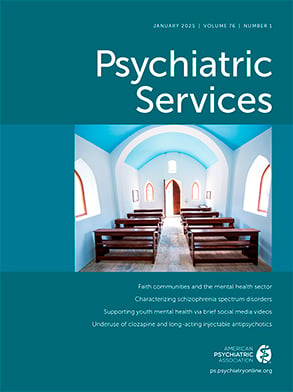Preterm infants, the fastest-growing segment of the pediatric population, are at risk of neurological and behavioral problems. Mothers of preterm infants have high rates of depression, which can have a negative impact on children's mental health. Studies show that young mothers have difficulty accessing high-quality mental health services. Thus developing accessible systems to prevent depression among mothers of preterm infants is a promising strategy to optimize both mothers' and children's mental health.
We have begun work to adapt, pilot, evaluate, and disseminate a problem-solving intervention to prevent postnatal depression among mothers whose preterm infants are hospitalized in the neonatal intensive care unit (NICU). NICU stays are often prolonged, presenting an opportunity to implement a behavioral intervention when parents are assuming a primary caregiving role. In addition to preventing depression symptoms, our problem-solving education model aims to improve functioning, particularly in the domains of parent-child interaction, family dynamics, and child health care utilization.
Problem-solving education is a cognitive-behavioral program adapted from problem-solving treatment—itself an evidence-based depression treatment and prevention strategy. It has utility among individuals whose depressive symptoms are intimately intertwined with social or medical circumstances. Our own preliminary work shows that a practical focus on daily problems can circumvent the stigma some patients feel in pursuing other therapeutic approaches. In an education session, intervention providers guide participants in defining an objective, measurable problem and then through goal setting, brainstorming and evaluating solutions, choosing a solution, and planning a course of action. In our population, a full problem-solving education course involves four one-on-one sessions with lay providers (30–45 minutes each); the course is initiated while infants are hospitalized and continues weekly. Sessions are held in the hospital or the home. To bridge the transition from NICU to home, at least one session occurs after NICU discharge.
Since the project's launch in 2007, we have made two substantive adaptations to the parent treatment model that are specific to working with this particular population. First, because the concept of preventing depression is not intuitive to many of our participants (sadness is often explained to them as a normal part of giving birth prematurely), we reframed the intervention as a way to learn new skills in parenting a child born prematurely and to ease the transition home. Second, when asked to think about their daily problems, many women discuss the tenuous health of their newborns, a problem they cannot control. Providers thus steer participants toward discussing controllable problems, to which this empowerment-focused model is suited.
To make problem-solving education replicable and cost-efficient, we have designed it to be delivered by bachelor's-level providers. Provider training entails one day of didactics, followed by five practice sessions. Practice sessions are audio-taped, and trainees receive individualized feedback until they meet criteria for model fidelity. Training takes four to six weeks; among eight college-educated providers, training success has been 100%. Educators meet in weekly group sessions for supervision.
Throughout pilot-testing and implementing the intervention in two urban NICUs, we have enjoyed support from both medical and nursing staffs. Because the nurses spend a substantial amount of time with parents, they have come to view problem-solving education as a way to engage parents in becoming more proactive in their children's care; as a result, the parents have become the principal advocates of the program. Surmountable barriers to implementing problem-solving education came initially from social work staff. In both of our participating NICUs, social work staff members were initially concerned that problem-solving education providers could be duplicating their own efforts and thus be serving as underqualified social workers. We overcame this resistance by including social work staff in the planning process and clearly delineating boundaries for the intervention.
Since the project's inception, we have served approximately 50 mothers. Approximately three-quarters of these recipients have completed full four-session problem-solving education courses. The most commonly discussed problems have been related to partners, broader family issues, and finances. On the basis of extensive field testing and encouraging results from a pilot study that examined depressive symptoms, stress, and social functioning, we are currently planning a three-site randomized trial of this intervention model.

